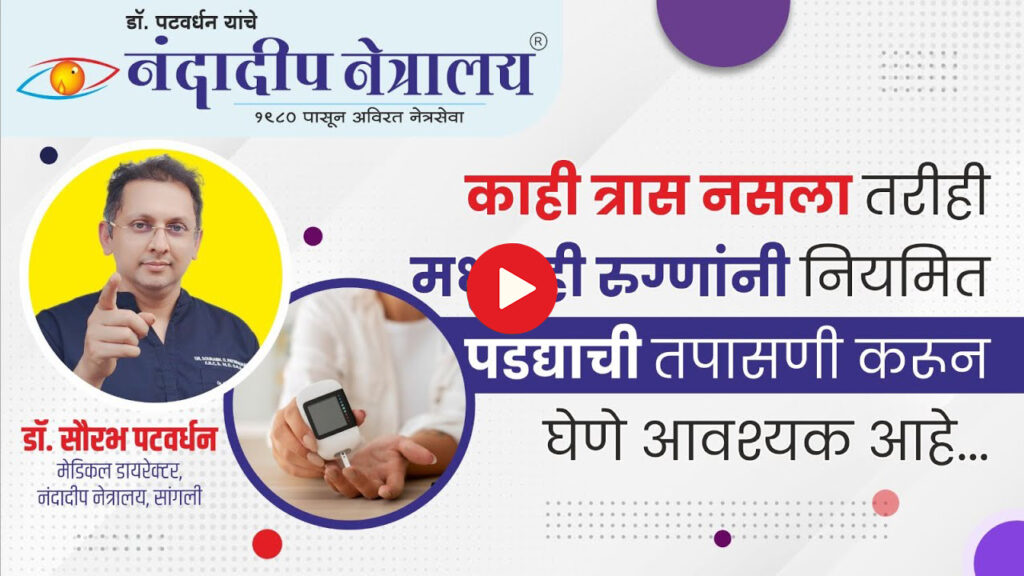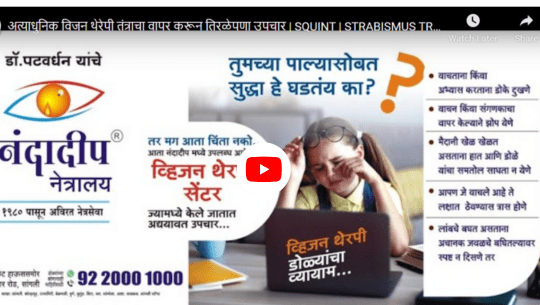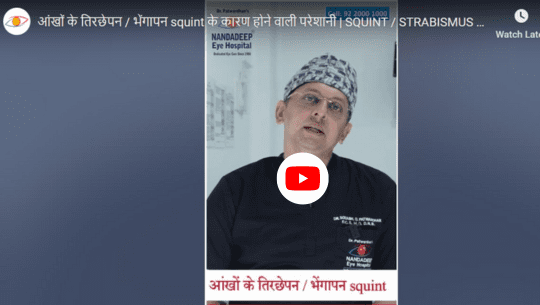Cortical Vision Impairment
Cortical Vision
Impairment
Cortical vision impairment (CVI) is a condition that affects the brain’s ability to process visual information. It is not caused by a problem with the eyes, but by damage or dysfunction of the brain areas that are involved in vision. CVI can affect people of any age, but it is more common in children, especially those who are born prematurely or have other brain-related disorders. Early identification and intervention are crucial for maximizing functional vision and promoting overall development.
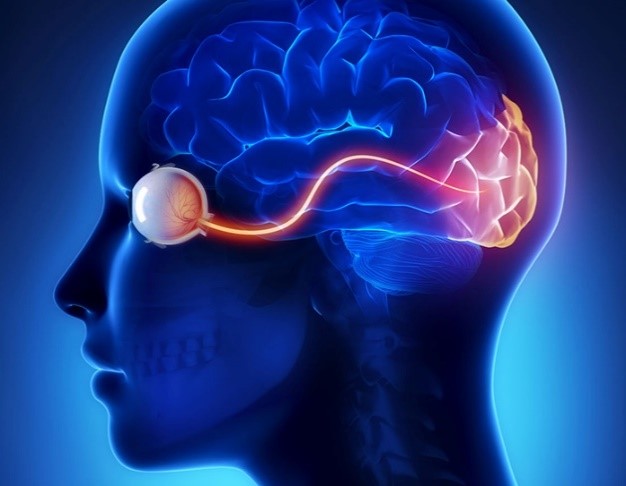
Symptoms of CVI
CVI can cause a wide range of visual problems, depending on the severity and location of the brain damage. Some of the common symptoms of CVI are:

Difficulty recognizing faces, objects, colours, shapes, or letters

Difficulty seeing things in cluttered or busy backgrounds

Difficulty seeing things that are not moving or have low contrast
Difficulty following moving objects or tracking with the eyes

Difficulty with depth perception, spatial awareness, or orientation

Sensitivity to light or preference for certain colours or light sources

Inconsistent or variable vision, depending on the environment, mood, or fatigue
Diagnosis of CVI
CVI is diagnosed by a comprehensive eye examination, a medical history, and a neurological evaluation. The eye examination will rule out any ocular causes of vision loss, such as cataract, glaucoma, or retinal detachment. The medical history will help identify any risk factors or causes of brain damage, such as stroke, infection, trauma, or genetic condition. The neurological evaluation will assess the brain’s function and structure, using tests such as brain imaging, visual evoked potentials, or visual field testing.

Treatment of CVI
- Stimulate and enhance the residual vision of the person with CVI
- Adapt the environment and materials to suit the visual needs and preferences of the person with CVI Processing and distribution
- Teach compensatory strategies and skills to use other senses, such as hearing, touch, or smell
- Provide emotional and social support to the person with CVI and their family
Some of the common strategies and interventions for vision rehabilitation are:
- Using high-contrast, simple, and familiar objects or images to attract and maintain attention
- Using bright colours, lights, or movement to stimulate vision
- Reducing visual clutter and noise in the surroundings
- Providing clear and consistent visual cues and labels
- Using magnifiers, large print, or audio devices to access information
- Using tactile or auditory feedback to reinforce learning
- Providing frequent breaks and rest periods to avoid fatigue and frustration
- Encouraging exploration and interaction with the environment
- Providing positive reinforcement and praise for achievements
Vision Therapy for CVI
There is no cure for CVI, but there are ways to improve the visual function and quality of life of people with CVI. The treatment of CVI is based on vision rehabilitation, which involves a team of professionals, such as ophthalmologists, optometrists, occupational therapists, teachers, and parents. The goals of vision rehabilitation are to:
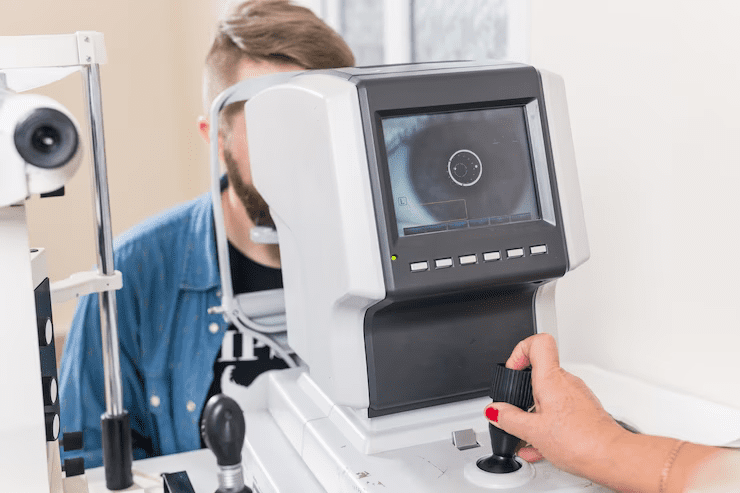
1. Restitution Therapy
- Objective: To recover visual field deficits.
- Process: Participants detect multiple light spots on a black screen across both blind and normal visual fields.
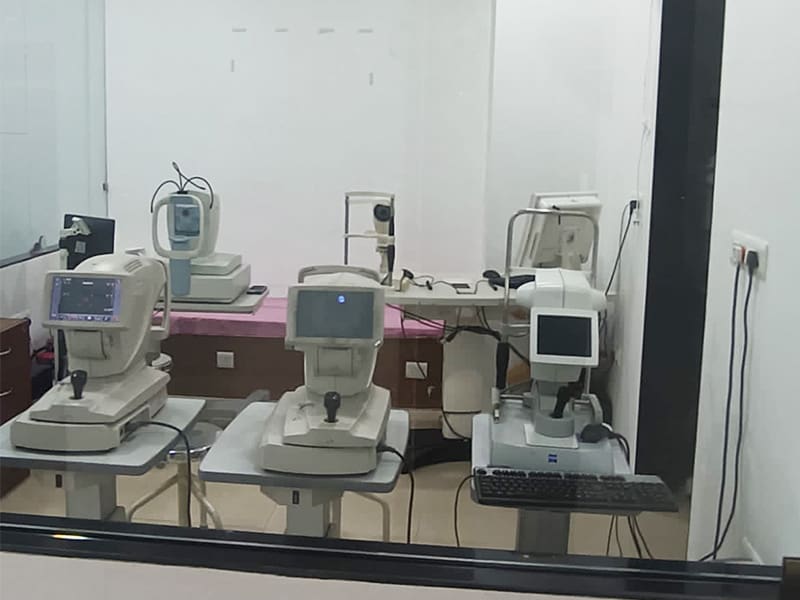
2. Compensation Therapy
- Objective: To help individuals compensate for vision loss.
- Approach: Using saccadic (small, rapid, jerky) eye movements to adapt to visual challenges.
Our CVI Experts

Dr. Sourabh D. Patwardhan
Phaco-Refractive-Vitreoretina- Glaucoma specialist FRCS (UK), MS (AIIMS), DNB, MNAMS, FICO
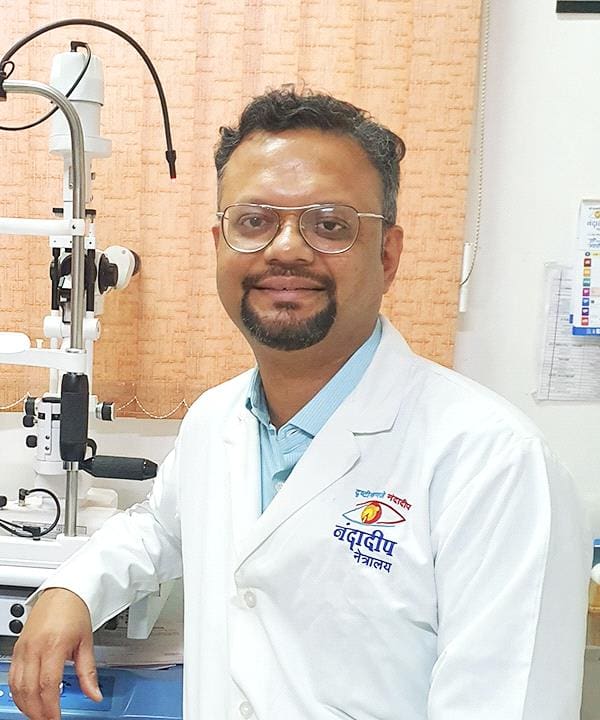
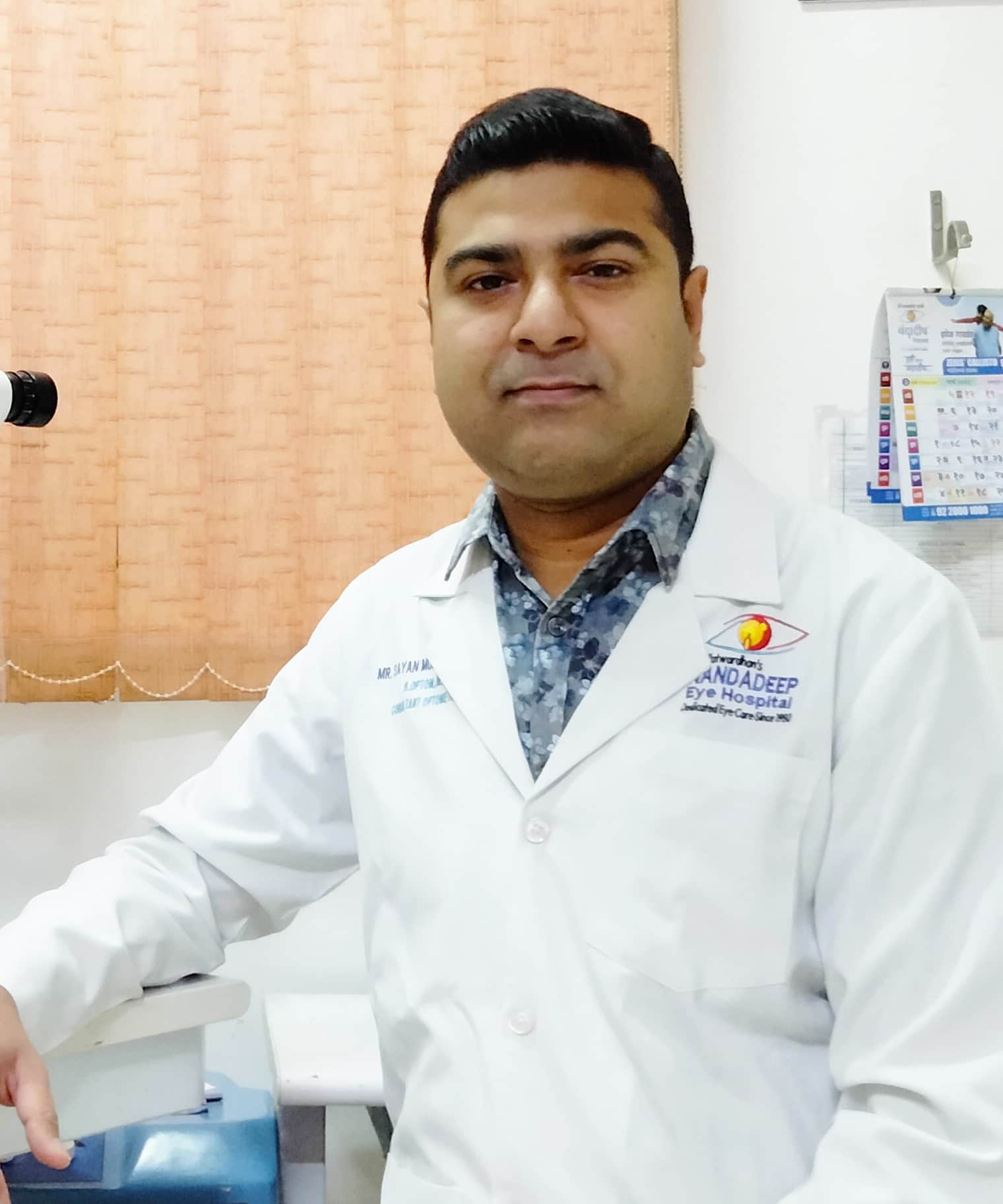
Optom Sayan Mukherjee
B.Optom., M. Optom. Consultant Optometrist, Vision Therapy, Speciality Contact lens
Why Choose Nandadeep Hospital ? Find Out The Latest Types Of Treatment Used For Cortical Vision Impairment
Explore our informative videos showcasing the latest advancements in Paediatric surgery options. From minimally invasive techniques to cutting-edge procedures, we provide in-depth insights into the innovative surgical approaches available for effectively managing Paediatrics and preserving your vision.

